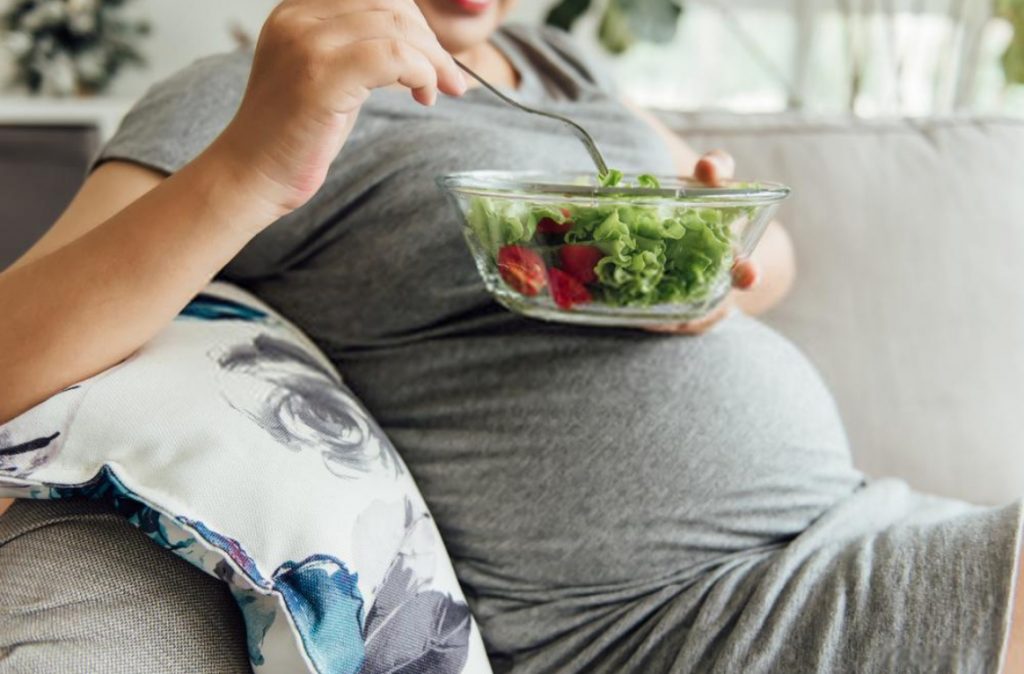During your pregnancy, making a few simple changes to what you eat such as the proper nutrition you can eat for two, can help both you and your baby to a healthier start. You may have to get through pregnancy cravings but never forget to eat properly as you have your future little one inside you.
Things You Do/Eat |
Switch To |
Why? |
| Skipping your breakfast | A packet of fresh milk or yoghurt |
It helps to maintain and prevent your blood sugar level, which could lead to fatigues. A high-protein or a high-calcium food helps to meet the needs of your growing baby.
|
| White bread, crackers and rice | Wholemeal bread, wholemeal crackers and brown rice |
Constipation is one of the main sufferings of pregnant mothers. Eating grain products help to ease bowel movements.
|
| Peanut butter or Nutella on toast for breakfast | Tuna, cheese, sardines, lean chicken meat |
There’s nothing wrong with consuming peanut butter or Nutella occasionally but not frequently. You should eat food that meets your nutritional needs during your pregnancy. It is best to meet specific requirements such as cheese for calcium, tuna and sardines for Omega 3 and protein as well as chicken for protein.
|
| Drinking caffeine-based beverages such as coffee, tea and cola as pick-me-ups | Fresh fruits |
Caffeine can cause low birth weight and also increased the risk of miscarriage. It is advisable to consume less than 300mg per day, which is equivalent to two small cups of regular instant coffee. Fruits are a better option because they are refreshing and high in vitamins and minerals. |
| Too busy for in-between-meal snacks | Make sure your main meals are complete |
It is alright not to have in-between-meal snacks as long as your main meals are complete, balanced and adequate.
|
| Eating sushi and deli sandwiches | Cooked food at these restaurants |
Avoid the risk of food-borne illnesses and bacteria from raw food, as uncooked foods that not sanitised with heat. Eating raw food may increase the risk of miscarriages and other effects of your pregnancy.
|
| A nightly glass of wine or beer with dinner | Plain water or freshly squeezed unsweetened fruit juice |
Alcohol is not recommended during pregnancy as it may cause foetal alcohol syndrome, which caused physical abnormalities, low birth weight, slowed growth and development, etc.
|
| Cake, chocolate or sweet biscuits for snacks | Milk, fruits, salads, crackers, yoghurt |
High-calorie snacks promote quick weight gain, especially in the middle of pregnancy. It will result in gestational diabetes and an overweight baby. It is okay to take sweet snacks once in a while. Too much intake of it during pregnancy will lead to hormonal changes and an increased risk of dental problems such as caries.
|
| Take-away dinners | Make sure they are balanced and complete |
Take-away dinners are alright as long as they are balanced and complete in nutrients. It means at least one carbohydrate option (such as rice, bread, noodles or potato), one source of protein (chicken, fish, beef) and a generous size serving of vegetables.
|
| Forgetting your vegetables | Make sure to have the greens on your plate. Start eating at least three servings of vegetables every day. (1 serving = 1 cup uncooked or ½ cup cooked vegetables) |
Vegetables packed with nutrients such as vitamins and minerals. It helps to maintain a healthy well-being. It also packed with fibre, which aids digestion and prevents constipation.
|
| A cup of juice instead of a piece of fruit | Fresh fruits |
Most fresh fruits contain a lot of nutrients which promotes the growth of healthy bacteria in the gut through prebiotic. Fruit juices purchased from supermarkets with no-added-sugar contain a high level of fruit sugar, compared to eating a slice of fruit, as it takes a large volume of fruit to produce a glass of juice. Moreover, fresh fruits also provide the feeling of fullness to get you through the day.
|
| Not drinking enough water | Drink at least two litres of water per day |
Consuming a sufficient amount of water to maintains hydration helps the in stabilising the blood volume, which is necessary for the growing foetus. It also helps to flush out toxins, prevents dehydration and constipation as well as maintains blood pressure.
|
There you go. It is indeed a hard change for you to stop eating a certain food during your pregnancy. But if you are good enough in mixing and ‘spicing’ up your food during pregnancy, this shouldn’t be a problem. What matters is that the food you are consuming is giving all the nutrients for you both.
Stay tuned for more pregnancy-related article on our blog and don’t forget to visit Motherhood.com.my for all your baby needs.
